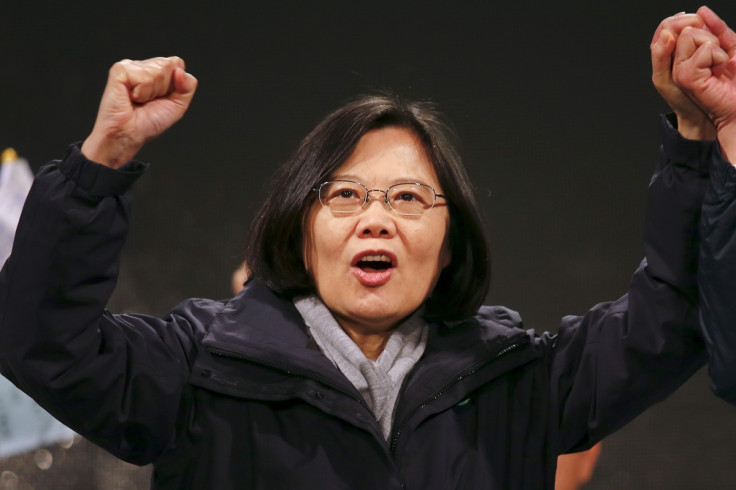Taiwan elections 2016: Opposition leader Tsai Ing-wen wins presidential vote

Tsai Ing-wen becomes the first female president of Taiwan after defeating the nationalist Kuomintang party. A source with Tsai's Democratic Progressive Party (DPP) told Reuters that the party was working on Tsai's victory speech.
Results showed the KMT candidate trailing with about 30% of the vote. Taiwan Chairman Eric Chu, leader of the ruling KMT party, has conceded defeat and resigned. "Eric Chu disappointed everyone. We lost. The nationalists have been defeated," the presidential candidate said, while surrounded by supporters, some in tears.
Anita Lin, 37, said she was "thrilled" at the result. "Taiwan's future is not in China. It's in the world."
The 1992 Consensus
The 1992 Consensus is an agreement between Taiwan's KMT and the Communist Party of China over the "One China" principle.
This comprise says that Taiwan is not a separate state from China – the so-called "One China" principle. However, it also states that the KMT can claim that it rules China out of Taiwan, while the Communist Party can also claim it rules China out of Beijing.
Tsai Ing-wen's DPP party rejects the 1992 Consensus. It maintains that mainland China and Taiwan are separate and sovereign states.
Beijing has warned it will not deal with any leader who does not recognise the "one China" principle, part of a tacit agreement between Beijing and the KMT known as the "1992 Consensus".
The rise of Tsai
One of nine children, Tsai was initially raised in Fenggang, a village in the southern county of Pingtung, but later moved to the capital where she spent her teens growing up in Taipei.
In an interview with Time magazine in 2015, Tsai recalled how, as the youngest daughter, she was expected to care and look after her father. "I was not considered a kid that would be successful in my career," she said.
However, Tsai had other plans and earned a law degree from Taipei's National Taiwan University and then enroled at Cornell University in New York for a masters degree.
After Cornell, Tsai headed to London, enroling at the LSE where she gained a doctorate in law. The time spent in London left her with not only a "quirky little British accent" but also an international perspective that many of her predecessors in the DPP leadership lacked, says J Michael Cole, a Taipei-based academic who has known Tsai since 2008.
"She is certainly a lot more worldly than previous leaders of the party."
© Copyright IBTimes 2025. All rights reserved.




















